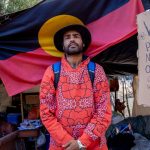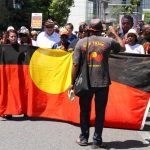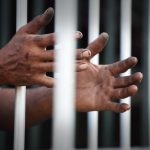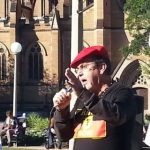Free DT Zellanach: Government Attempts to Silence First Nations Protesters
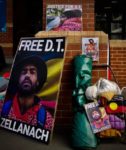
Spiritual leader and one of the most vocal activists at the Djab Wurrung Heritage Protection Embassy, DT Zellanach is currently being detained by Victorian authorities on remand over some ridiculously minor offences.
Zellanach’s charged with driving on an expired licence and verbally disrespecting a police officer. For these summary offences, he was denied bail and is being detained in Ravenhall Correctional Centre. And he won’t be going before a magistrate until later this month.
But, according to his supporters, Zellanach’s real crime is being a prominent leader of the First Nations protest that’s currently trying to stop a four lane highway being run through sacred land. And he’s been imprisoned prior to VicRoads attempting to move in and commence work.
Right now, around 40-odd supporters have been taking turns in running a round-the-clock vigil out the front of the Melbourne Assessment Prison (MAP), which is the correctional facility Zellanach was initially locked up in following his 3 May arrest.
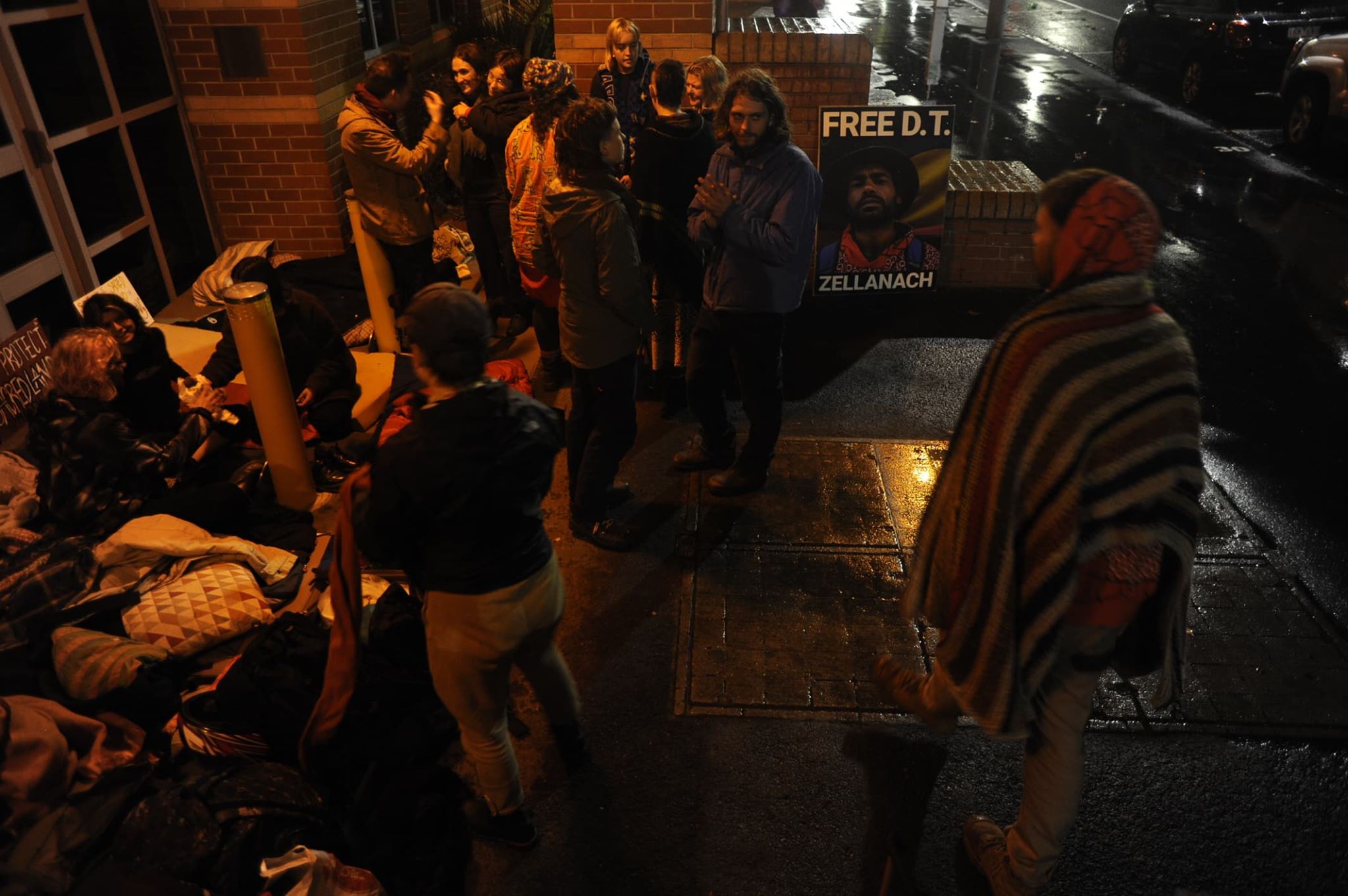
Operating as a Melbourne extension of the Djab Wurrung Embassy, the MAP Assembly plans to continue its protest camp out the front of the CBD remand centre to draw public attention to Zellanach’s unjust incarceration.
A bias in the system
“It’s to get him off country,” asserted Jayden Reiher, a spokesperson for the MAP Assembly. “It’s the strategy of the authorities, government and corporate bodies at play to try and get him off country and make the defence camps out there more vulnerable.”
“But, the camps are really strong,” he continued. “If anything, it’s given us a sense of urgency and we are ready for the 29th.” That’s the day VicRoads and Major Road Projects Victoria are hoping to “roll back in and try to desecrate the sacred land”.
Reiher stresses that he’s never heard of an Anglo Australian being detained over such minor offences. And he questions how Zellanach is serving more time on remand, than a white NZ farm worker was sentenced to last September for poisoning 406 wedge-tailed eagles in the Gippsland.
As for the bulldozers moving in on 29 May, Reiher told Sydney Criminal Lawyers it’s likely to be a repeat of what happened in mid-March, when Victoria police moved in to disburse the tent embassy, and protesters marched them back off the site.
And this Wednesday, a delayed Federal Court hearing will take place that involves the Djab Wurrung people appealing the decision of federal environment minister Melissa Price to let the project go ahead, as she’s decided the area isn’t of significance.
A dreaming track jeopardised
Established on 18 June last year, the Djab Wurrung Heritage Protection Embassy aims to prevent the destruction of the sacred trees and the land they’re situated on, as this site – which lies along a songline – holds much significance for the local people.
The so-called progressive Andrews government plans on constructing a duplicate strip of the already existing Western Highway between the towns of Ararat and Buangor to cut down three minutes of driving time.
To facilitate this convenience, around 3,000 trees – over 200 of which are sacred to the Djab Wurrung people – will be destroyed. This includes an 800-year-old birthing tree that’s seen over 50 generations born inside the hollow of its trunk.
The government announced in February that it’s amending the route of the road, so as to allow for a few of the culturally significant trees to be saved. But, in effect, it’s still callously taking a light to a local Notre Dame and burning it to the ground with no concern for Indigenous heritage or culture.
A place of women’s business
Zellanach described the government’s promise as “an absolute cop out”. “Quite frankly, eight trees, as opposed to in excess of 200 culturally modified trees in this area, just doesn’t weigh up. Not only that, it’s also the landscape that those trees sit upon that’s sacred,” he said over the phone in April.
“When we talk about sacredness within life – or any kind of sacredness – we’re talking about this particular place,” the Djab Wurrung man explained. And the site that his people are trying to save is where women have given birth for thousands of years.
The state failed to even consult the local people about the project. Zellanach explained that 25 years ago the sacred trees were verified, but, in the meantime, the paperwork has vanished. And when the embassy sent in “freedom of information requests, the pages came back blank”.
According to Reiher, Zellanach is in “good spirits” at present on the inside. And judging on how he ended the interview last month, it’s very doubtful that he’s given up hope that the tent embassy protest will be anything but a success.
“We’re not going anywhere. We’ve asserted sovereignty. What we have done here is a reclamation of our sacred land under the rule of sovereignty,” he put forth defiantly. “We’re in a space of really educating the system.”
The last glimmer of ignorance
“It’s a huge disrespect and violation of First Nations rights to their traditional lands,” Mr Reiher said. “And there’s only so much of that left that we know about as well.” He further posited that there’s a connection between the highway duplication project and mining licences issued in the Grampians.
On Tuesday night, the MAP Assembly clocked up 172 hours outside the correctional facility in its makeshift camp. And by all accounts, the reception it’s been receiving from the Melbourne public has all been positive.
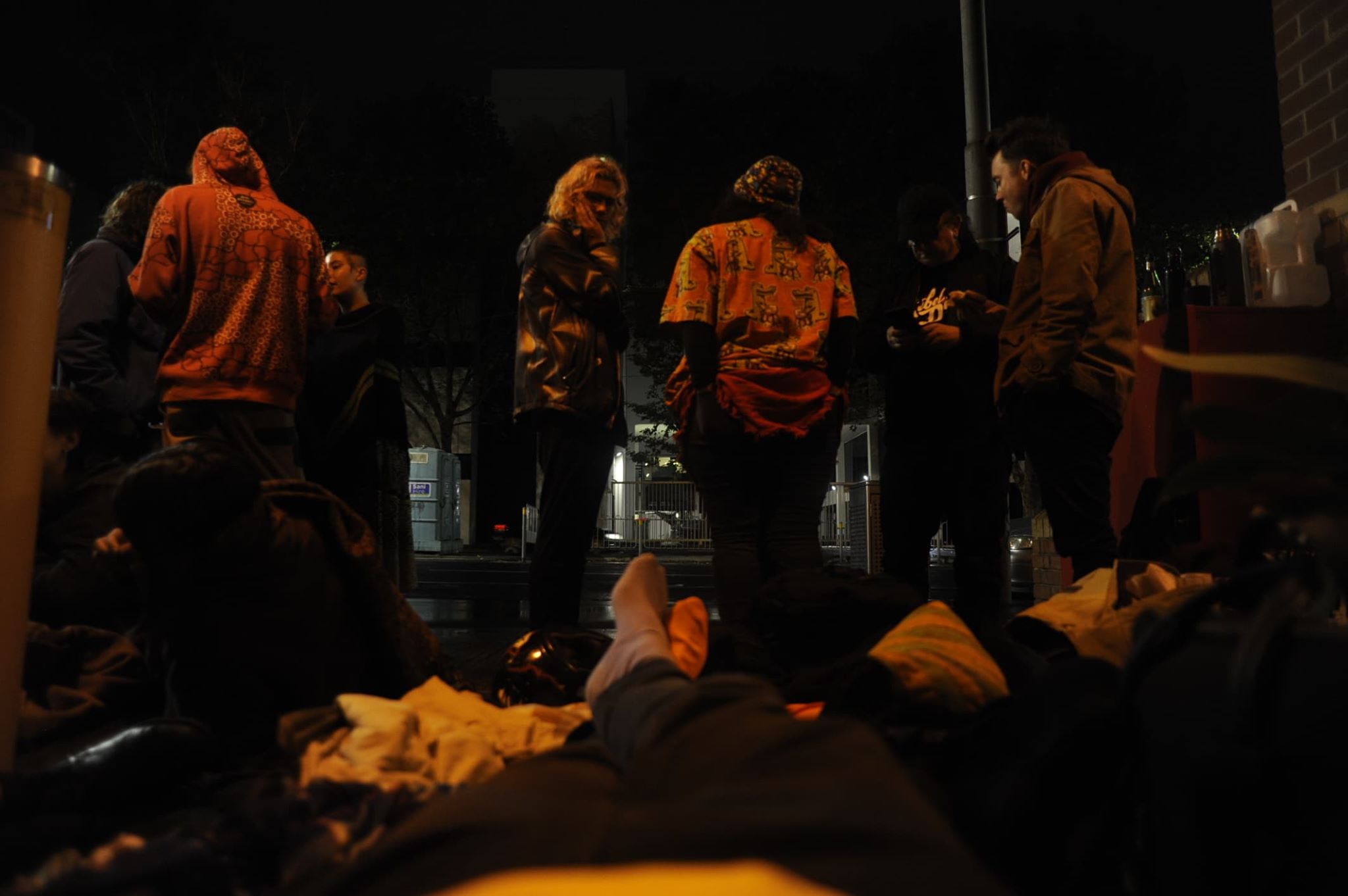
This is in the same vein as the atmosphere that’s been created at the tent embassy out on Djab Wurrung country, where Reiher explains that not only is the road project being halted, but there’s been an opportunity for people from all walks to address the inherent racism in the system.
“VicRoads’ ambitions to continue this project would be a continuation of the European invasion that started over 200 years ago. It’s just a contemporary version,” Reiher remarked. And as for Zellanach, he said, “we all just want him out of there, being denied bail for those minor offences is absurd.”


